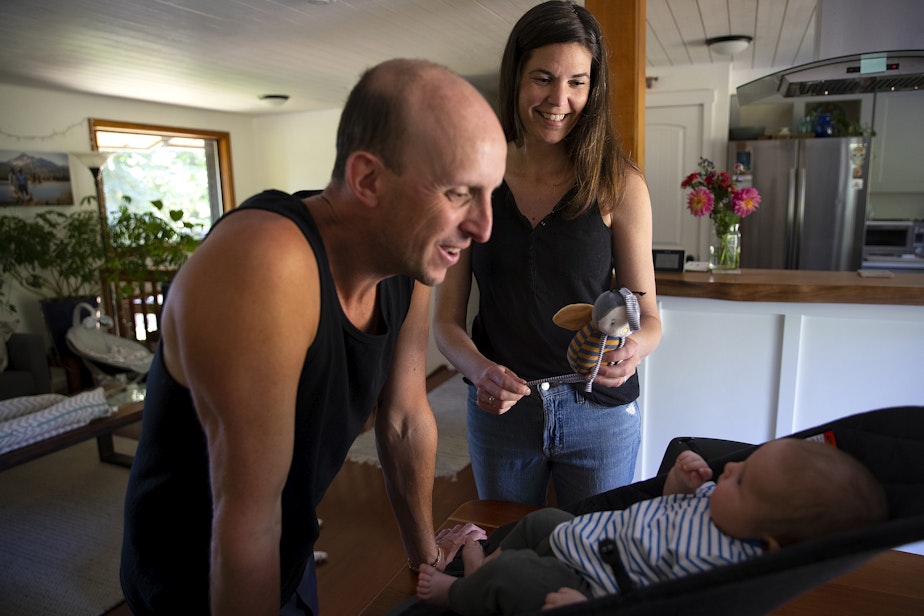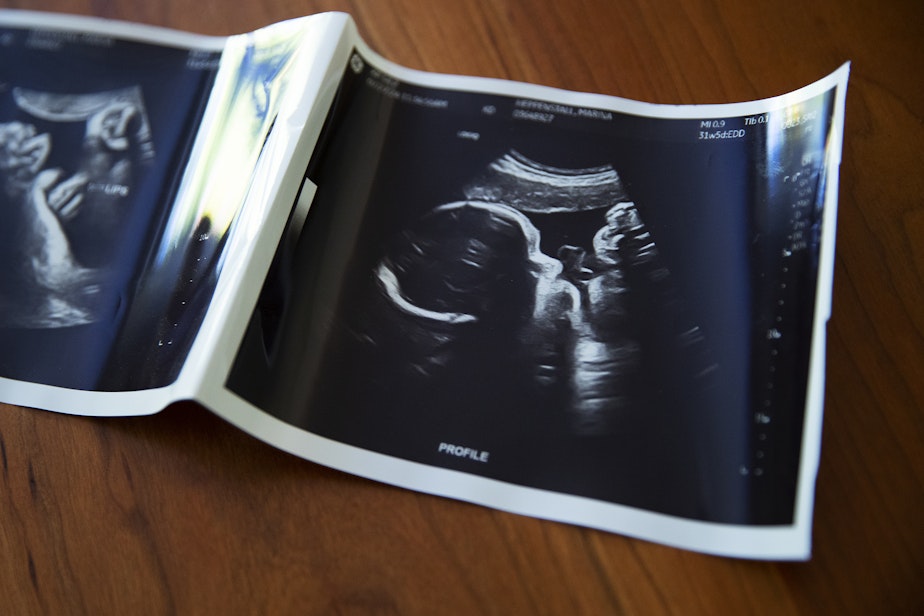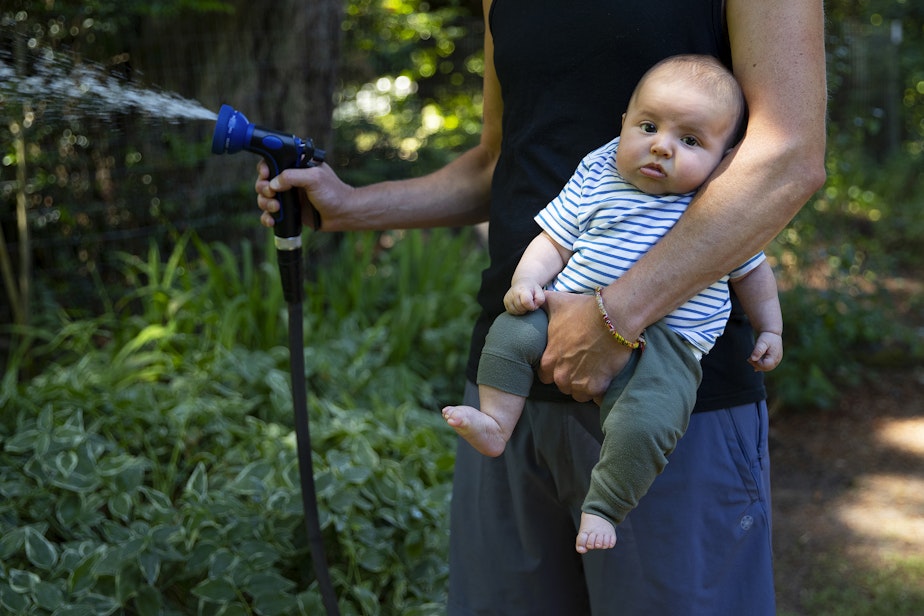Kaiser midwives no longer deliver babies in Seattle, even as demand increases

In the backyard of their Bainbridge Island home, Marina Heppenstall and Skyler Vella have a chicken coop and a couple dogs.
She works in sustainability; he’s a contractor. When they found out roughly a year ago that she was pregnant, they knew they wanted a midwife.
“I had heard a lot of stories of OB-GYNs who have kind of pushed things on people that they didn’t necessarily want,” Heppenstall said. “It seemed like the midwifery practice kind of just aligned more with my vision for how I wanted to have this baby.”
They went to Kaiser Permanente Capitol Hill, a midwifery practice that will stop delivering babies in early 2025, shutting down an option for hundreds of moms who worked with this group every year.

In recent years, families expecting babies have increasingly sought midwifery care. Women often choose midwives when they want more time with their provider or are hoping to avoid medical interventions, like epidurals or C-sections.
“It’s a model of care that emphasizes shared decision-making, informed consent, trauma-informed care, and the education and empowerment of birthing people,” said Kelly McBroom, a certified nurse-midwife at Kaiser’s Capitol Hill campus. She’s been a midwife for almost 30 years, almost 20 of those at Kaiser.
Nurse midwives like McBroom generally deliver babies in hospitals.
“We really bridge the gap and try to provide patient-centered, individual care honoring the choices of birthing people in a hospital environment,” McBroom said.

The Kaiser — formerly Group Health — midwifery group formed in 1990, making it the oldest hospital-based midwifery practice in Seattle. A Kaiser spokesperson told KUOW they’re moving most of their Seattle midwives to Bellevue, Tacoma, and Olympia to meet the demand for midwifery there. A couple of part-time midwives will stay on in Seattle to do abortions and gynecological care (like placing IUDs), and to teach group prenatal classes (though not deliver the babies).
Newly pregnant Kaiser patients are no longer offered the option of a delivery by a Kaiser midwife in Seattle. Instead, they’re told they can see a family medicine doctor on Capitol Hill or at another Kaiser clinic in the Seattle area. Or if they want a Kaiser midwife, they can travel to Bellevue or Tacoma to see one. Or they can choose a midwife at one of NeighborCare’s community clinics, and Kaiser will cover that care in its role as insurer. Like Kaiser’s Seattle midwives, NeighborCare’s midwives deliver babies at Swedish Hospital on First Hill.

McBroom said those options aren’t the same as seeing a Kaiser midwife in Seattle.
“NeighborCare doesn’t currently have staffing to support an additional 30 births a month,” McBroom said. “I think Kaiser patients who get care at NeighborCare are going to have some issues with access.”
Sponsored
Critics of this change also worry that sending Kaiser patients to NeighborCare could displace the uninsured and immigrant families those clinics are meant to serve.
A Kaiser spokesperson said her team expects NeighborCare to take on only seven to eight Kaiser patients per month.
More than one midwife told KUOW that many medical practices come and go, but the closure of the Kaiser midwives feels existential — as if their profession is under attack — a major medical system doesn’t value midwifery and they wonder who’s next.

Compared to most other parts of the U.S., Seattle is a good place to be if you want a midwife. As midwifery grows in popularity, though, there aren’t always enough to go around. That means some people, like Marina Heppenstall, travel far for midwifery care. Others have trouble getting their first prenatal appointment as early as they’d like. That’s especially challenging for people who have miscarriages, severe vomiting, or other complications early in their pregnancies.
Sponsored
The bottleneck in growing midwifery is the pipeline.
Sponsored
“If as a health-care system, we want to follow the lead of countries that have great outcomes, or follow the lead of what the research tells us, which is more midwives tend to improve outcomes, what we really need to do is increase our capacity to train future midwives,” said Mary Mittell, a certified nurse midwife and the medical director for midwifery at Swedish Hospital.
The Kaiser midwifery team at Capitol Hill trained eight students a year — about 10% of all the midwifery students in Seattle. If those students want to learn about the full scope of prenatal, birthing, and postpartum care, they’ll have to find a new place to train — which may take them to a different city.

Skyler Vella, from Bainbridge Island, said he and Marina Heppenstall loved the Kaiser midwives.
He said that during the birth, there was a shift change between two midwives.
Sponsored
“That second one came in and was just so excited to be there and so into our birth,” he said. “It was like her joy in life was to be at that one birth.”
Editor's note, 8/8/24: This story was updated after publication to include pertinent information provided by Kaiser.
Editor's notice, 6/10/25: This story has been updated to clarify that while Kaiser still offers prenatal care in Seattle, it does not offer midwifery delivery services in the city.




